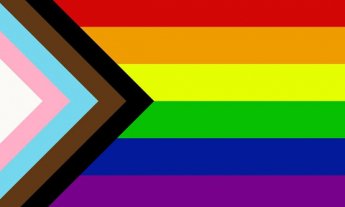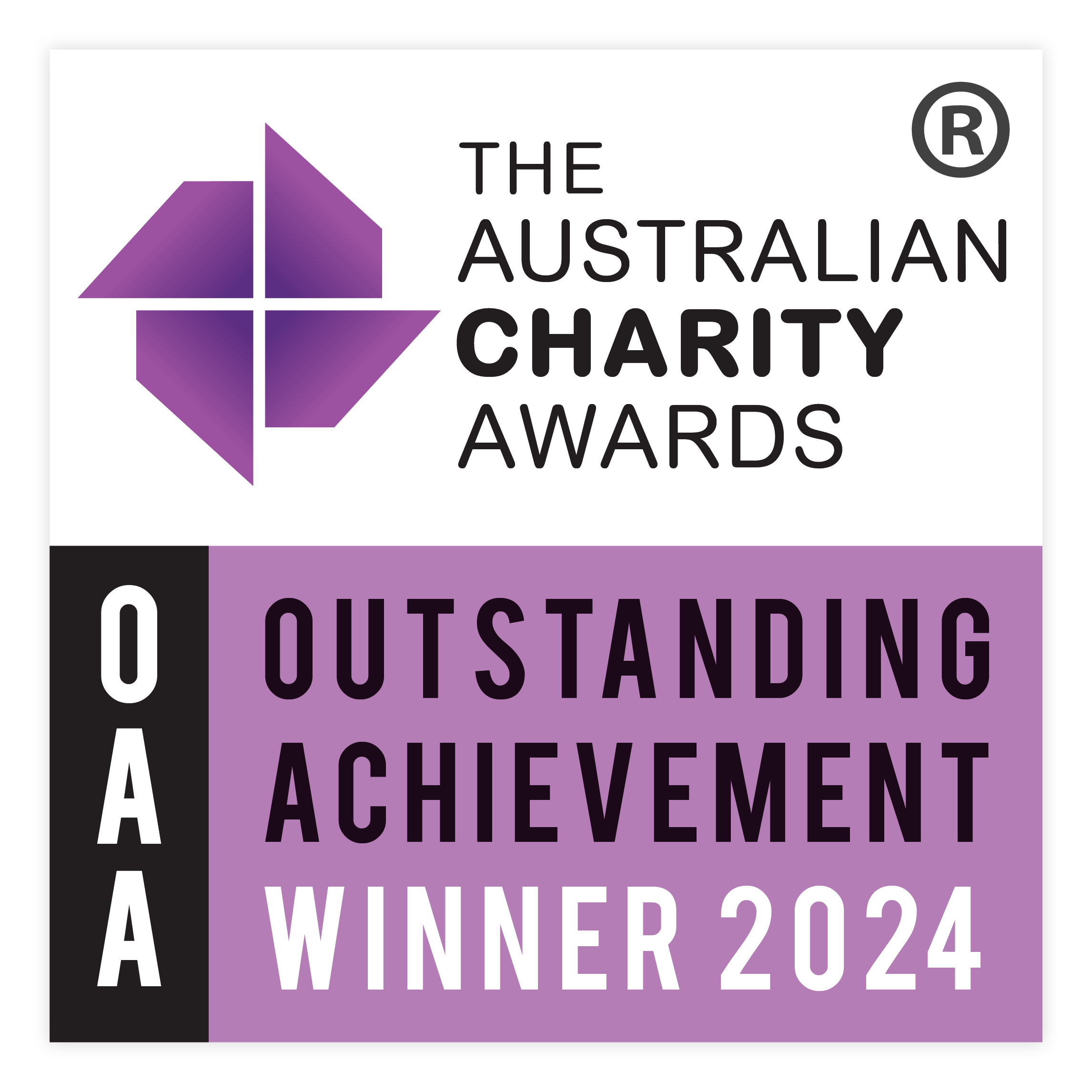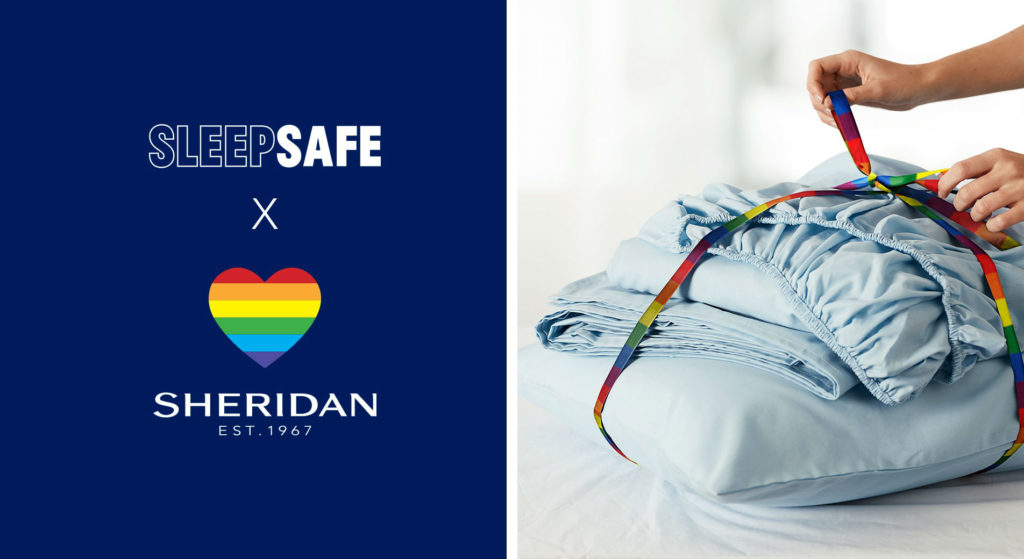
Through the SleepSafe initiative, Sheridan and StreetSmart are fighting to put an end to homelessness. SleepSafe helps many community organisations by providing sleep kits. This week in light of it Mardi Gras, we talk to two organisations who work specifically with the LGBTI community.
It’s unknown to many that the LGBTI community is extremely vulnerable when it comes to experiencing homelessness. It impacts all ages, who are exposed to an increased risk of danger in crisis accommodation, including discrimination, violence, theft and bullying.
To learn more, we spoke to Housing for the Aged Action Group (HAAG) and Perth Inner City Youth Services (PICYS)
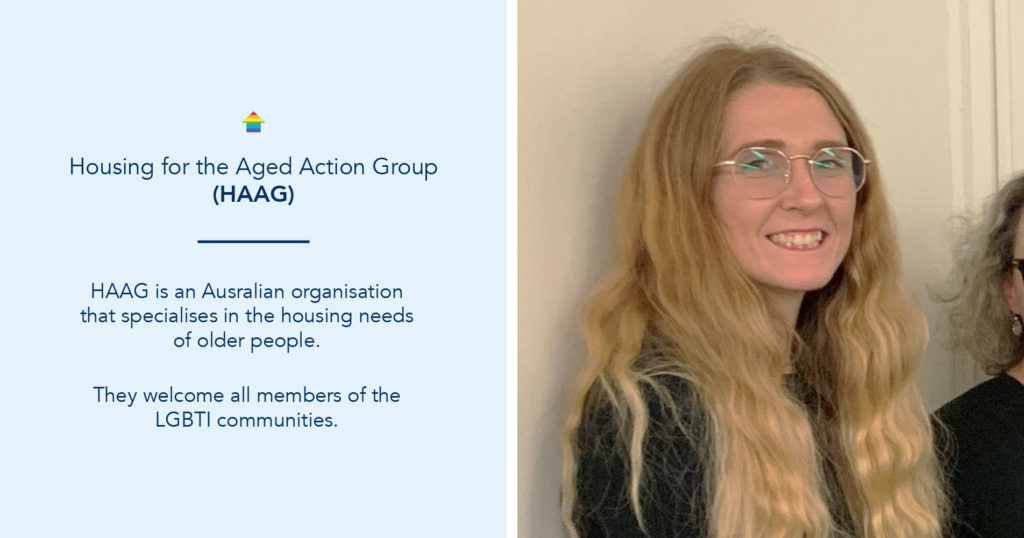 Rebecca Walton, Project Worker
Rebecca Walton, Project Worker
HAAG
Why is the elderly LGBTI community so susceptible to homelessness and what events commonly occur to result in this?
Our research has revealed that over 16% of older LGBTI people are currently experiencing or at risk of homelessness. In addition to this, 40% have indicated they have previously been at risk of homelessness. However, we believe that often LGBTI older people do not recognise they are at risk or, by definition, experiencing homelessness and are unaware of support services available. For instance, our research found that over 33% of LGBTI older people living in rental properties are unable to afford their rent and of those who own their home with a mortgage, over 50% are concerned about their housing in the future. So we predict a much higher percentage than 16% of older LGBTI people are currently at risk of homelessness.
For older LGBTI people, the risk of homelessness is further increased as they are more likely to live alone, without children or family to rely on for assistance. They may also be estranged from their families of origin and much less likely to have children to rely on for support than their non-LGBTI peers. Instead, they often rely on family of choice which lacks social and legal recognition. On top of this, they must also deal with the additional challenge of reduced financial security. Because many LGBTI elders lived the majority of their working years in an era when discrimination was legal, job opportunities were limited. This means reduced lifelong earnings and fewer opportunities to build superannuation, when compared to their heterosexual peers. In addition, LGBTI elders are more likely to face prejudicial attitudes in the private rental market as well as discrimination in shared accommodation facilities, rooming houses and services and have less access to information about their housing rights due to being subjected to a lifetime of discrimination and negative attitudes. This puts them at significant risk of becoming homeless.
How important is a good night’s sleep for the Australians you help?
A good night’s sleep is incredibly important for maintaining good physical and mental health. LGBTI older people often experience chronic stress from lifelong experiences of discrimination and prejudice. When you factor in homelessness or risk of homelessness the stressors can be unbearable for some. A good night’s sleep is vital to reduce the effects of stress and ensure that they are better able to cope and that they can have better control over what is happening in their lives.
How does a good night’s sleep contribute rebuilding other facets of their lives?
Lack of sleep can make it more difficult for this group to access resources they need to get back on their feet. Besides the physical health effects, lack of sleep can cause people to miss appointments for housing and other support services. In contrast, having a good night’s sleep fosters mental resilience and assists LGBTI older people at risk of homelessness to deal with the adversity and stress they are currently facing and access appropriate support services.
How have the sleep kits provided by the SleepSafe initiative impacted the work you do?
At HAAG we don’t just simply give people a roof over their heads, we provide a home that can be lived in for the duration of their lives. Our workers provide assistance with everything from housing applications to packing up belongings and assisting with the cost and physical support of moving. Once re-located we link the older person into any support services they may need and assist with re-engaging in their local community or communities of interest. Clients are also encouraged to continue their involvement with HAAG as a member or volunteer in one of our working groups. This can become a new interest for many older people and a space where they can feel accepted and welcomed.
Initiatives like SleepSafe ensure that we are able to continue to provide a holistic approach to the work that we do. By providing clients that we have housed with a sleep kit, we are able to provide older people with the little touches that make a house feel more like a home. For people who have experienced homelessness or being at risk of homelessness every small luxury related to having secure accommodation is important.
What are your goals for supporting the older LGBTI community in the future?
HAAG’s LGBTI Elders Housing project aims to ensure older LGBTI people have access to secure, affordable and appropriate housing that can be enjoyed for the rest of their life. This means raising awareness amongst older LGBTI communities about the risk factors for homelessness and facilitating early referral before a housing crisis, including planning for retirement and affordable and secure housing options for LGBTI older people.
HAAG places a lot of value on community knowledge, so we want to ensure that LGBTI older people play an active role in the development of resources and community education materials and community discussion surrounding housing and homelessness. As the project unfolds, we hope to train up peer advocates who can be contact points for people in the LGBTI community experiencing housing issues and who can also assist in delivering community education sessions.
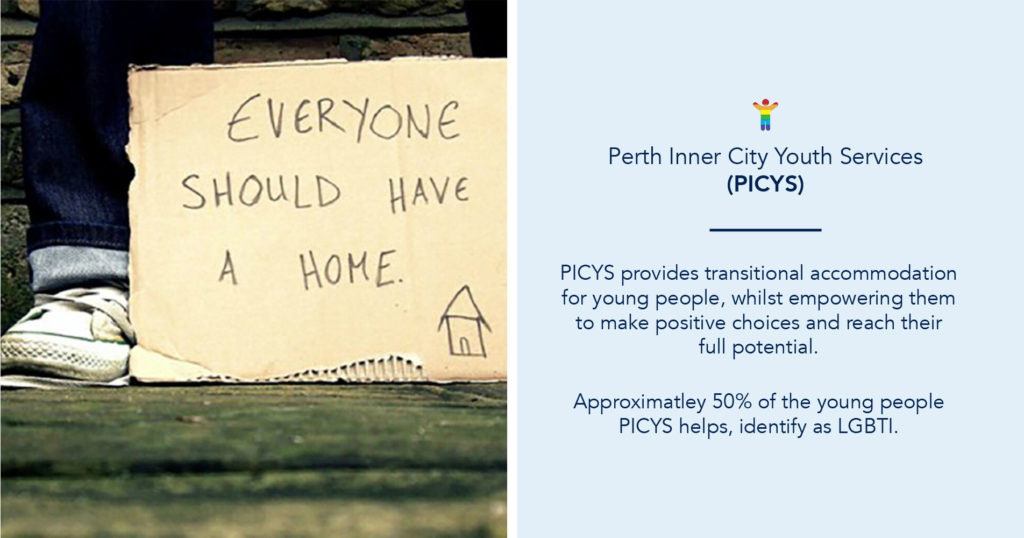 Andrew Hall, Executive Officer
Andrew Hall, Executive Officer
PICYS
Why is the youth LGBTI community so susceptible to homelessness and what events commonly occur to result in this?
Young people who identify as LGBTI and experience homelessness, which most often includes disconnection from a supportive family, can find this extremely isolating and disconcerting as they most often experience and fear discrimination and rejection from people who they have known all their life. It’s a strange and complex world to navigate when you are young and unsure of whom you can trust with your story and who you are. The fear of further discrimination from other people is REAL and ENORMOUS… and it can feed into negative self-thoughts.
How important is a good night’s sleep for the young Australians you help?
It’s a little-known fact that sleep deprivation can kill you quicker than food and water deprivation. That’s why it’s historically been used as a torture technique. We also know sleep is so important for the developing physical body, think about those sleeping babies and toddlers. Well young people are still developing into their adult bodies and adult thinking, so they need safe secure regular sleeping conditions. Homelessness lends itself to “grabbing sleep whenever and wherever you can” whilst always staying hypervigilant around your safety – that’s not conducive to good health and wellbeing and subsequently compromises everything else. Try sleeping at the shopping centre mall on a bench in the daytime (it’s safest to sleep in public places during the day) day in and day out, it sucks!
Apart from a safe place to sleep, how do you support youth in creating a brighter future?
PICYS provides safe supportive relationships and environments where young people can “be themselves and become who they want to be”. PICYS walks alongside young people who are exploring and navigating all the journeys of life, about themselves, their relationships with others, what’s important to them, their active participation in communities, and their hopes and aspirations. The variety of tasks and activities is as endless as the breadth of individuality and presenting circumstances.
How have the sleep kits provided by the SleepSafe initiative impacted the work you do?
PICYS has often been called a “family” by young people – really, it’s what the young person is hoping for as their definition of a “family” and how they would like a “family” to be for them. I often say, “if you are not missed – then you don’t belong” and every person needs “to matter” to other people. PICYS works to ensure each individual young person we know is fully aware that they “matter” and belong and are missed when we don’t see them. They “matter” – they are of significant value as a person – the person they are!
What are your goals for supporting the youth LGBTI community in the future?
PICYS has an Intentional Focus to reserve 50% of our Service capacity for LGBTI young people and a sub quota for Trans and Gender Diverse (TGD) young people. This is a reverse discrimination strategy, as many universal or mainstream services still struggle to practice fair and equitable service provision and practices. PICYS maintains a universal open access practice, with a publicly stated intentional focus – we find this builds the understanding of and demonstrates an Inclusive Society whilst counteracting the impact of discrimination and self-stigma. All people matter – and we would all people to matter to all people – that’s a harder scenario to achieve … yet super worthwhile to pursue!
You can assist local community organisations in your area by contributing to the SleepSafe initiative. A $15 donation provides a sleep kit for someone experiencing homelessness. These kits help give someone the security of their own bedding to use while they’re in either temporary or more permanent accommodation. Sleep Kits are manufactured by Sheridan suppliers using excess material and each contain a single sheet set (fitted and flat sheets with a pillowcase) and towel.




